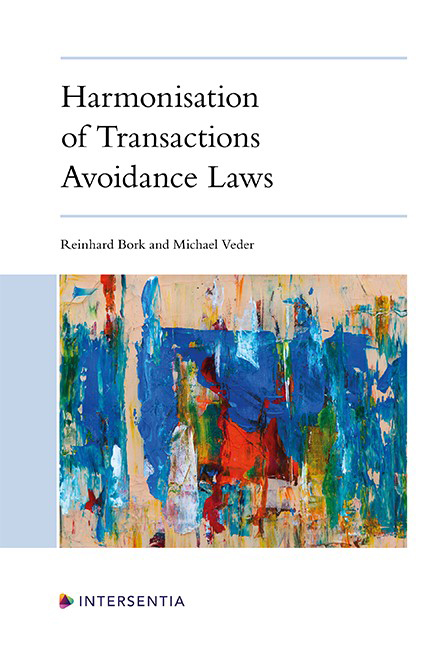Poland
Published online by Cambridge University Press: 26 May 2022
Summary
A. INSOLVENCY LAW OF POLAND
The Polish insolvency law includes the Bankruptcy Law of 28 February 2003 (hereinafter “BL”), covering bankruptcy proceedings, and the Restructuring Law of 15 May 2015 (hereinafter “RL”), covering four types of restructuring proceedings. Transactions avoidance law is provided for in the Bankruptcy Law as well as in the Restructuring Law, albeit only for one type of restructuring proceedings – reorganisation proceedings (postę powanie sanacyjne).
A general regulation of the actio pauliana is provided for in the Civil Code. Outside insolvency proceedings, an actio pauliana can be brought by any creditor acting in his or her own benefit, while in bankruptcy and reorganisation proceedings it can be brought exclusively by the Insolvency Practitioner, acting for the benefit of all creditors.
When applied in bankruptcy proceedings, the transactions avoidance law applies without difference to all categories of debtors, including consumers. Reorganisation proceedings are applicable only to entrepreneurs (natural persons, legal persons and organisational entities).
Please refer to the National Report for Poland (general introductory remarks, Questions 1 and 54) for more details.
B. SCOPE
1) LOCATION
According to the “minimum harmonisation approach” (see chapter 1, para. 1.11), it would not be necessary to amend the existing structure providing for the application of the Civil Code provisions on actio pauliana by the Insolvency Practitioner in the context of insolvency proceedings, in parallel with transactions avoidance rules codified directly in the BL and RL.
2) PERSONAL SCOPE
No changes would be needed as regards the personal scope of application of the transactions avoidance law, as there are no restrictions in this regard under Polish law.
3) INCLUSION OF RESTRUCTURING PROCEEDINGS
The transaction avoidance law is provided for only in reorganisation proceedings (the strongest of four types of restructuring proceedings). The actio pauliana applies according to general rules in the other three types of proceedings, i.e. it can be brought by creditors acting in their individual interest.
All types of restructuring proceedings under Polish law apply both in the case of threat of insolvency (understood as imminent but not yet occurred insolvency, Art. 6(3) RL) and in the case of substantive insolvency that has already occurred.
- Type
- Chapter
- Information
- Harmonisation of Transactions Avoidance Laws , pp. 437 - 450Publisher: IntersentiaPrint publication year: 2022



